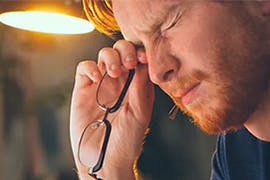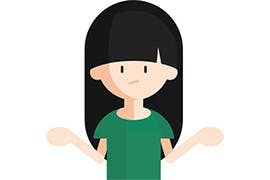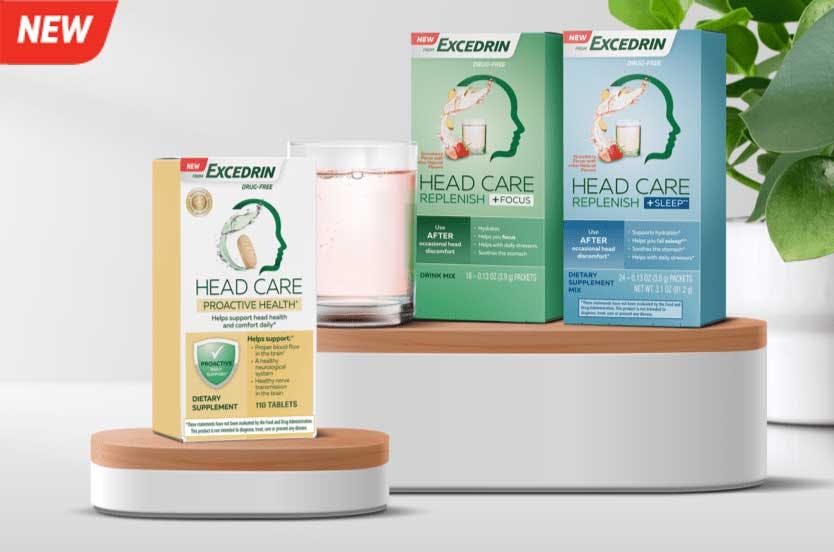8 Tips for Better Sleep and Fewer Headaches
No more counting sheep: Real-life tips for better sleep.
Sure, we could all get more sleep. But a restless night or not going to bed early enough just means a rough morning and maybe nodding off a little at the 3 p.m. meeting, right?
Not true. Sleep insufficiency has adverse effects and has been linked to motor vehicle and workplace accidents, and chronic diseases such as high blood pressure, depression, diabetes and obesity, according to the Centers for Disease Control and Prevention.
What’s more: Irregular sleep patterns may trigger both headaches or migraines in some.
The good news? Poor sleep can be managed by small lifestyle changes, also known as sleep hygiene. We turned to an array of experts for their best tips on how to sleep better.
Sleep Tip #1: Be On Time
There was a reason your folks sent you to bed early when you were a kid. “I’ve heard time and again that the best way to get enough sleep is to stick to a sleep schedule, and this really is true,” says Bethany Ramos, editor-in-chief of Naturally Healthy Publications and a SheKnows parenting writer. “I’ve succumbed to my sad fate as a parent and normally go to bed early, a few hours after we put the kids to bed, at 9 p.m. I rarely ever have trouble falling asleep and wake fairly refreshed to start work at 6 a.m.”
Sleep Tip #2: Chill Out
Ultramarathoner and author Dean Karnazes often spends weeks on the road, crossing multiple time zones. His top good-night’s-sleep tip? “I’ve found that keeping the temperature slightly below 70 degrees Fahrenheit is the most conducive for getting a comfy night’s sleep,” he says. “Any cooler than that can be too chilly; any warmer tends to make things uncomfortable and lead to restlessness and frequent stirring.”
Sleep Tip #2: Chill Out
Another of Karnazes’ tips? Earplugs. “I think many people fail to realize how disruptive to sleep noise can be, even very small background noises,” he says. “Try sleeping with earplugs. You’ll be amazed at how much deeper you sleep when all noise is removed.” Karnazes also wears a sleep mask.
Sleep Tip #2: Chill Out
What you ingest before bedtime can affect your sleep patterns. “Caffeine has a half-life of six hours, which means that six hours after your last sip, half the caffeine is still in your body,” says Dr. James B. Maas, author of Sleep For Success! (with co-author Rebecca Robbins). “And don’t forget that chocolate and many energy drinks and sodas contain caffeine as well.” Better to come up with other activities to de-stress, says Maas: “Listen to some soothing music, try meditation, or just write your worries on a piece of paper to get them out of your head.”
Sleep Tip #2: Chill Out
Work keeping you past six? That means you’re likely sitting down to dinner at eight or nine. Not good, says Helene Emsellem, MD and Medical Director of The Center for Sleep & Wake Disorders. “We need food but if you are working hard and get home late it’s very difficult to be trying to sleep when your brain is still directing the digestion of your dinner. Try having the bigger meal at lunch or four smaller meals instead of three meals.”
Sleep Tip #2: Chill Out
Early research has shown that viewing an LED screen before bed could make it hard for your body to go to sleep. Instead, Ramos turns to a book before settling in for the night. “My husband likes to tease me that as soon as I read one page of my book, I’m fast asleep — and it’s true.”
Sleep Tip #2: Chill Out
Your pillow might be a bad-sleep culprit. Test it by folding it in half. “If it opens instantly, then it’s providing adequate support,” says Maas. “If it stays closed, it’s dead.” Maas suggests choosing a pillow that matches your sleeping style (side, back, stomach) when you fall asleep. “This will keep you in a position that keeps your head, neck and spinal cord in a straight line,” says Maas.
Sleep Tip #2: Chill Out
Fifteen to 20 minutes before hitting the sheets, turn off the TV, silence the phone and begin a sort of “sleep transition” period, Emsellem says. “The goal is to disengage during this time and relax,” she says. Set yourself some cues to start this time, like an alarm, then consider a warm shower, aromatherapy, gentle upper body stretches or yoga to relieve physical tension, Emsellem suggests.
Sleep Tip #2: Chill Out nighttime headaches, headache tips, sleep tips,








